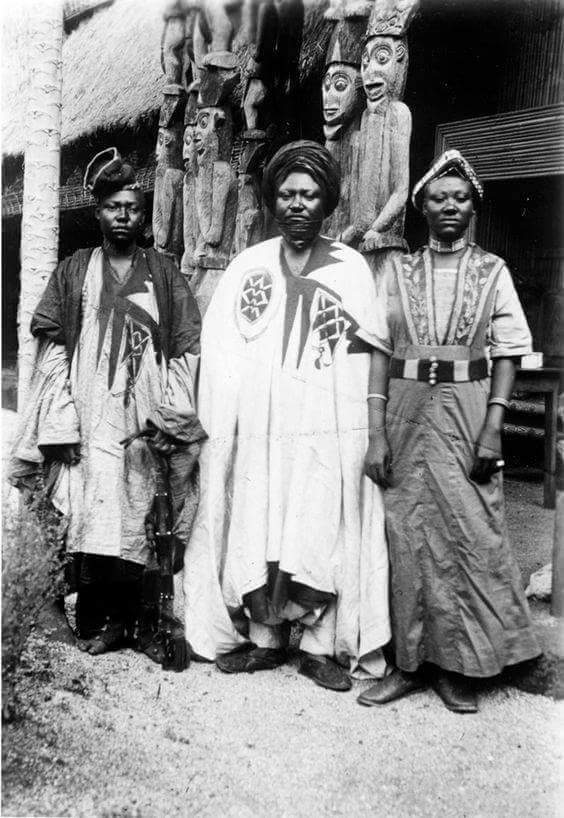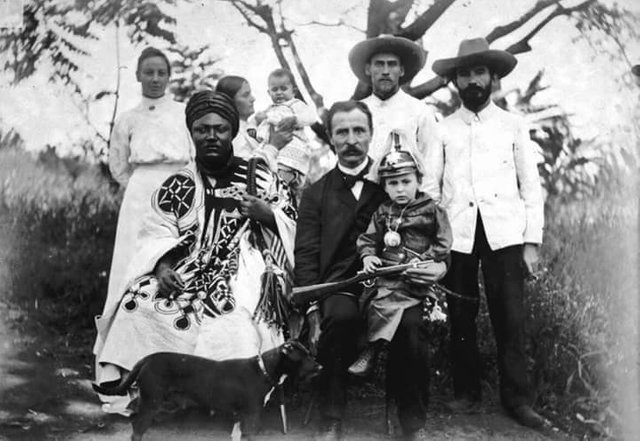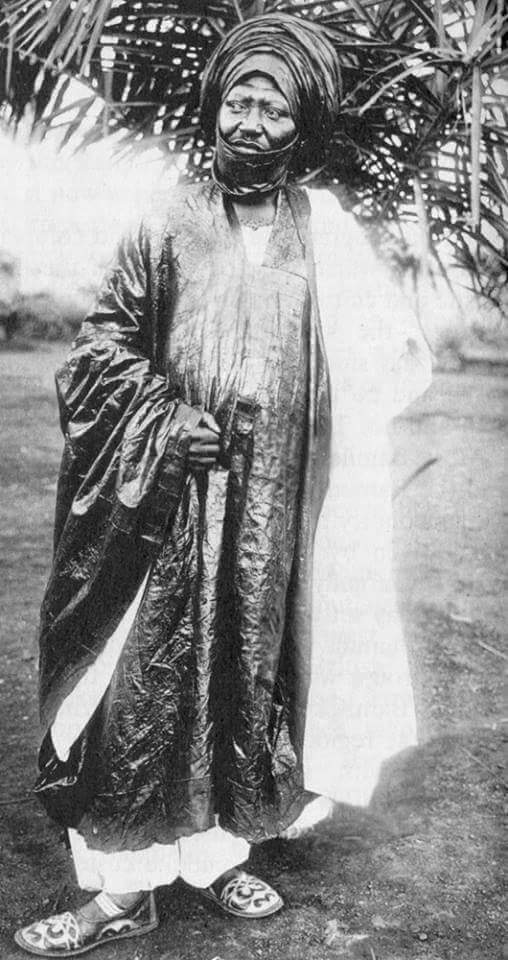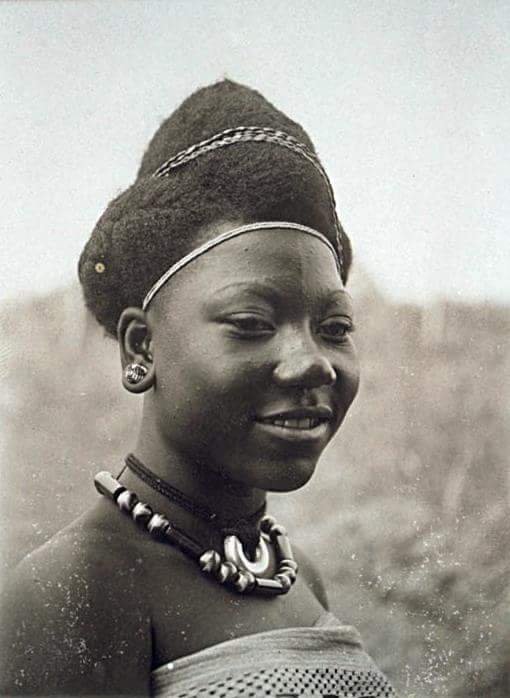100 GREATEST AFRICANS OF ALL TIME -King Ibrahim Njoya

#Imagesource:http://digitallibrary.usc.edu
King Ibrahim Njoya
– A Polymath and inventor who ruled a kingdom in Cameroon from 1889 – 1933
King Ibrahim Njoya once ruled over the Bamum, a large ethnic still found inhabiting the grasslands of western Cameroon in West Africa. His name brings pride to the heart people of African descent up till today because, as much as he was a king, he was also an inventor who did not only try to invent indigenous alphabets to codify his people’s language into writing, he also established schools where children were taught how to read and write using this alphabets. Not only this, King Njoya was said to have built himself a palace in 1917 and also credited with inventing a hand-powered corn mill.

#Imagesource:http://digitallibrary.usc.edu
Their country is located between Nigeria in the West, Equatorial Guinea, Gabon and Congo Brazzaville in the South and Chad and Central African Republic in the North. Within Cameroon, the land of the Shumom people is located in the northern part. It is a land of massif plateau and mountains, valleys and vast forested land, a part of the great equatorial forest of West and Central Africa.

#Imagesource:http://digitallibrary.usc.edu
The writing system Njoya developed is a semi-syllabic method as found in surviving Bamum script. It evolved from rudimentary pictographic script to a more advanced logo graphic script, which he later refined to the famous semi-syllabic script known to the world today. According to Awake!, a publication of Jehovah witnesses:
Njoya encouraged the use of the Bamum script by requiring that it be taught in schools and used at all levels of government. He directed the writing of an impressive history of his dynasty and his country in his new script. Thus, for the first time, Bamum people could read about their traditions, laws, and customs. Njoya even had pharmaceutical recipes recorded using the new Bamum script. Over 8,000 of those original documents are still preserved in the palace archives. (Awake! 2007 pp. 26-27)
In fact, the publication in their entry on the West African king claims that after the World War I, the control of Njoya’s territory by Germany was lost to France. However, though Njoya always welcomes new ideas, he was proud of, and committed to the preservation his heritage, this did not go well with the French who were looking for ways to further subjugate the country under French rule and culture. This inevitably led to his opposition to French colonial rule and as it was always the case with African chiefs who did not demonstrate loyalty to the colonialists, Njoya was deposed in 1931 by the French. Two years later died in exile.
The colonialist French quickly put a ban on the use of the Bamum script in schools and without Njoya to promote the script, it soon fell into disuse and was forgotten by the majority of the Bamum people. When missionaries of Christendom arrived on the scene, they studied the spoken language of the Bamum people and prepared a grammar to be used in their schools. Unlike Njoya, they borrowed most elements from the already existing Roman alphabet and its phonetics.
Recently, efforts have been made to renew interest in the Bamum script. Part of these efforts is being made by the present-day king, Sultan Ibrahim Mbombo Njoya, who has opened a school in the palace that his grandfather built. Here local schoolchildren are once again learning this writing system so that it will not fall into extinction

This is Princess Tabea Nzabndunke, one of the daughters of the King Ibrahim Njoya.
#ImageSource: http://digitallibrary.usc.edu/bmpix/controller/view/impa-m28727.html